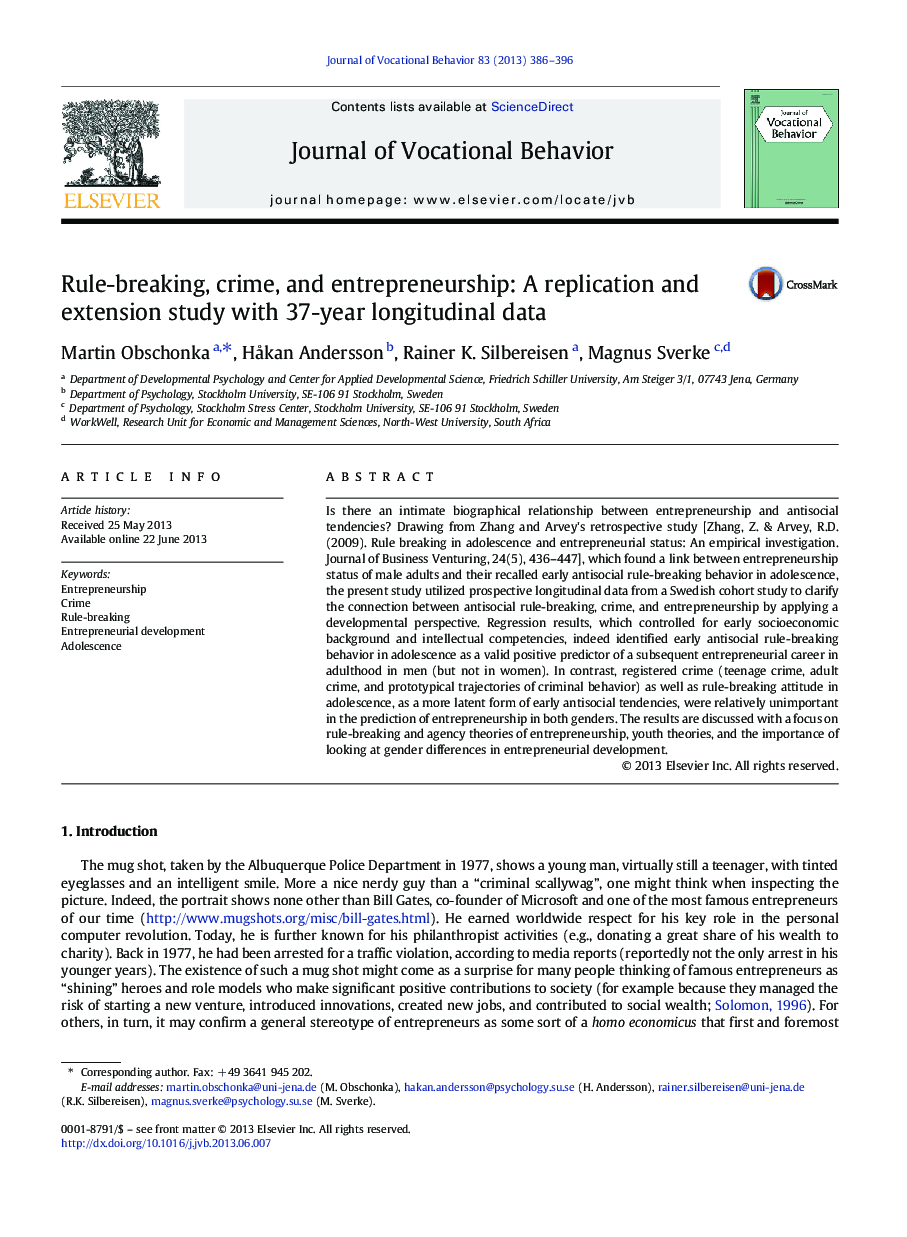| Article ID | Journal | Published Year | Pages | File Type |
|---|---|---|---|---|
| 886969 | Journal of Vocational Behavior | 2013 | 11 Pages |
•We study the biographical connection between entrepreneurship and antisocial tendencies.•We look at early antisocial rule-breaking behaviors and attitudes in adolescence and at registered crime.•We analyze prospective longitudinal data collected from a school grade cohort in a Swedish city.•Consistent with an existing retrospective study early modest (not severe) rule-breaking behavior predicted entrepreneurship.•The results support the early-unruliness-hypothesis of entrepreneurship for men, but not for women.
Is there an intimate biographical relationship between entrepreneurship and antisocial tendencies? Drawing from Zhang and Arvey's retrospective study [Zhang, Z. & Arvey, R.D. (2009). Rule breaking in adolescence and entrepreneurial status: An empirical investigation. Journal of Business Venturing, 24(5), 436–447], which found a link between entrepreneurship status of male adults and their recalled early antisocial rule-breaking behavior in adolescence, the present study utilized prospective longitudinal data from a Swedish cohort study to clarify the connection between antisocial rule-breaking, crime, and entrepreneurship by applying a developmental perspective. Regression results, which controlled for early socioeconomic background and intellectual competencies, indeed identified early antisocial rule-breaking behavior in adolescence as a valid positive predictor of a subsequent entrepreneurial career in adulthood in men (but not in women). In contrast, registered crime (teenage crime, adult crime, and prototypical trajectories of criminal behavior) as well as rule-breaking attitude in adolescence, as a more latent form of early antisocial tendencies, were relatively unimportant in the prediction of entrepreneurship in both genders. The results are discussed with a focus on rule-breaking and agency theories of entrepreneurship, youth theories, and the importance of looking at gender differences in entrepreneurial development.
